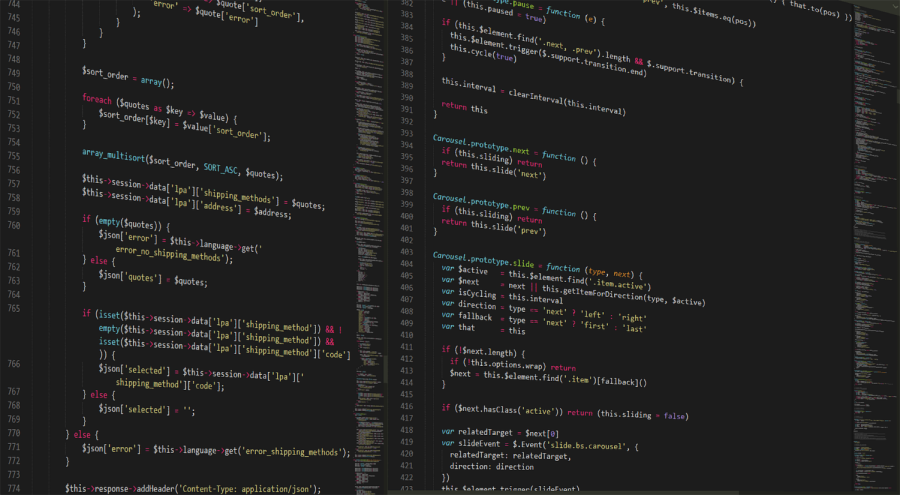Procrastination is a universal issue that affects millions of people across the world. Studies have shown that procrastination hits the age group of 14-25 years old hardest, which is concerning for many high school and college students. Procrastination, the action of delaying or postponing something, causes stress and anxiety for those who practice it and can even impact work and social relationships. To combat the impulse to procrastinate, researchers have identified several specific methods that can help. Firstly, in order to find what works best for an individual, there needs to be a psychological analysis conducted in order to identify the root cause of the person’s compulsion to delay action. Psychology Today, an independent publication with articles focusing on mental health issues, has identified several reasons why a person may procrastinate as well as specific tactics that can be used to counteract these root causes.
Check below to see if any of the following sounds like you:

1. Fear of failure- Worrying that the outcome won’t be perfect.
“The chronic procrastinator, the person who does this as a lifestyle, would rather have other people think that they lack effort than lacking ability.”
—Joseph Ferrari (professor of psychology, author of countless books on the subject of procrastinating.)
Ultimately, no one wants to feel clueless or incompetent– especially not a perfectionist who prioritizes their time to spend countless hours on a subject to make it perfect and exceed their expectations. Low self-esteem or constant pessimistic thoughts can also be the cause of this self-doubt. If a person doesn’t have emotional regulation, her overall academic performance will never feel up to par, so she will choose instead to avoid doing a task altogether. However, to recuperate the lost emotional boost, one must apply emotion-focused strategies. “Self-appreciation builds a stronger foundation to overcome our flaws. Being too harsh on [ones]self can get [one] stuck in continuous rumination. Students who forgave themselves after procrastinating on the first exam were less likely to delay studying for the second one. Those who couldn’t forget themselves failed to study again,” states Psychology Today.
Self-doubt isn’t healthy for the brain for it leads to more anxious thinking, conclusively self-forgiveness is a powerful antidote.
Practice these mindfulness activities throughout the day:
- Becoming aware of your emotions and identify them to tame it.
- Understanding what triggers those feelings
- Acknowledging negative emotions and turning them into positive ones
- Supporting yourself
- Increase one’s self-awareness.
2. Impulsiveness- Getting distracted by other activities.
“Life has no limitations except the ones you make.”
—Les Brown (American author and motivational speaker who writes inspirational books about shifting perspective.)
Technically, it’s no one’s fault for being easily distracted. In modern day society, technology plays a significant role in the everyday life of a person. The average person now may experience excessive thinking and impulses to check social media over doing anything else. Distractions are becoming a significant challenge for many, especially those who have short attention spans. These distractions may use up what a limited supply of attention a person may have in a day and as a result, make them less productive when the actual participation gets needed in deep work thinking. “Less energy equals less capacity to understand, decide, recall, memorize, and inhibit. The result could get mistaken for important tasks. Alternatively, distractions can cause you to forget good ideas and lose valuable insights,” states Psychology Today. Although many may already know the instant focus technique which is to turn off all communication devices during the process of doing work, the most effective way of making this possible in the first place is based on how well the person inhibits the wrong things coming into focus. Our brains prefers to focus on the things in front of them. A proven strategy is to do the “5-minute” test.
Step by step to do the task:
- Analyze your surroundings and find what’s distracting you the most
- Depending on the particular object find ways to distance yourself from it
- Avoid the distraction and put the required task in front of you
- Do the work for at least 5 minutes
- Take breaks in between the task to not overwhelm your mind
3. Indecisiveness- Unable to make decisions
“There is no try. You must choose between “yes, I’ll do it” or “no, I won’t do it.” There is no in between these two.”
—Roxana Jones (Author of many self-dedicating books of whom touch the basis of life)
Some people genuinely don’t to know how to make final resolutions and as a result, not making a decision absolves them of responsibility for the outcome of events. Decisions are agonizing, and deliberation drags on inefficiently. “Some factors that can limit the ability to make good decisions include missing or incomplete information, urgent deadlines, and limited physical or emotional resources. When making a decision,[one] form opinions and choose actions via mental processes which are influenced by biases, reason, emotions, and memories,” states Psychology Today. A person may weigh the consequence of the choice and overthink the matter intuitively. Inexplicably they use the foundations from past childhood events to get the instant, intuitive and reasoning for creating moral choices. To overcome this deficiency in mental processing one needs to examine their intuition and reasoning. Intuition is using ones “gut feeling” about possible courses of action, which is generally needed most in making a quick decision. Then reasoning is using fact and figures in front of them to make choices, acquired more in complicated and demanded final choices. There is a seven stage model created effectively by researchers to combat this issue. It is designed specifically for those who can’t think on their own.
Stage by stage method:
- Listing possible solutions/ options
- Setting a time scale and deciding who’s responsible for the decision
- Gather your information
- Weighing up the risks involved
- Deciding on values (If the responsibility for a decision gets shared, it is, therefore, possible that one person might not have the same values as the others.)
- Weighing up the pros and Cons
- Making the decision

Procrastination isn’t necessarily bad:
To fully understand the mind of a procrastinator, one needs to know that there are two types: the active and the passive procrastinator. The active person works better under pressure and likes the instant adrenaline rush when being demanded under time to do their work, unlike the passive procrastinator who gets paralyzed by their indecision to act, and fails to complete a task on time. Ultimately the majority of procrastinator are passive and it’s a constant mental battle to combat. At the end of the day, however, the person needs to adapt to a different lifestyle routine in order to increase their productivity. While procrastination is difficult to overcome because of it’s psychological root and the trial and error nature of figuring out what works to combat it, it is possible to do. Take this author, who has been a master procrastinator, and successfully turned this article in on time, as evidence that it can be done!






